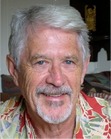DARKNESS... AND LIGHT
Two things leave me incredulous about our human species as I read "A Woman of No Importance," by Sonia Purnell. One is our potential for unspeakable cruelty toward each other; the other our capacity for unimaginable courage.
Purnell's book is the story of Virginia Hall, an American woman of enormous energy and practical aptitude whose talents were vastly underestimated by the diplomatic service in the years before World War II (she was deemed capable only of demeaning clerical tasks and rejected for the more responsible work for which she yearned), and who offered herself instead, in some exasperation, as a spy for the British secret service as it first began to find its feet in Vichy France. Placed under the command of men less competent and far less courageous than herself, she managed nonetheless to create functioning networks of resistance fighters and underground railroad agents who rescued countless downed airmen and fellow spies from the jaws of the Nazi occupiers--all the while herself in constant danger of capture, torture, and certain execution.
That's the story so far. I have reached the moment of the Normandy invasion by the Allied forces, with Virginia struggling to organize internally squabbling and mistrustful "maquisards"--the French partisans--into a behind-the-lines strategy of resistance, ambush attacks and sabotage. One of her persistent problems was to assert her authority over macho freedom fighters who proved to be in general as scornful of women as the diplomatic and military establishment.
First, then, the cruelty. It is almost beyond comprehension that so many human beings--they must surely, many of them, have been regular human beings before being turned into monsters--were induced to perform acts of such incredible barbarity as those practiced almost routinely, not only by the infamous Gestapo but by soldiers wearing the German military uniform. Purnell's book dwells thankfully only infrequently on the excruciating details of torture, but her frequent allusions and brief descriptions are enough to sicken you for their cruelty and callousness. Even absent actual, physical torture, the prisons were hellholes of vermin infestation, disease and deprivation where many captives died. And as the war began to turn against them, the German occupying forces resorted to the execution of thousands of civilians, including whole villages, in a spirit of vengeful desperation. These were soldiers, of course, recruited, indoctrinated and trained to follow orders or themselves face discipline, even execution. But I still find their inhumanity--not only in France but also, particularly, on the Eastern front--to be horrifying. It is a bleak reminder, too, that such acts of barbarism have been practiced by our species throughout history.
The different, and to me equally unfathomable story is that superhuman courage can co-exist with such cruelty, and even match it in its intensity. Both men and women had the courage to be dropped by parachute or left onshore in full knowledge that they had little prospect of surviving the dangers that awaited them--the kindest of which might be a quick death by firing squad. They knew to expect much worse in the torture chambers. Deep cover spies like Virginia lived in constant apprehension of the sound of Gestapo Citroëns screeching to a halt outside their windows or jackboots echoing on the stairs. A single careless step or a wrongly pronounced word in the cafés risked betrayal by fellow Frenchmen intimidated into submission and obedient to the Vichy government. To transport forged papers or, worse, "pianos"--a code word for radios--past Nazi checkpoints was a task fraught with danger, courting discovery and immediate arrest and imprisonment. The wonder is that any human being had such courage.
When confronted with these issues and reflecting on them, as I have done in the past, I often end up asking myself this tough question: would I have been able to find the same courage in myself that these people did? Would I have been ready to expose myself to the darkest side of human nature and stand up to it? Or would I have taken the easier path and retreated from the danger? I am fortunate to have never had to make so radical a choice. But I recognize it to be one that we are confronted with, each in our own small way, today. There is darkness all around us. And there is light. I am confounded as to which one we, as a nation, will now choose.



